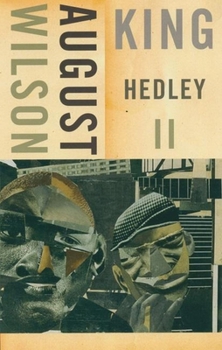Book Overview
Customer Reviews
Rated 5 starsIt Wasn't "Morning In America" For Everyone In Reagan's Time
Okay, blame it on the recently departed Studs Terrell and his damn interview books. I had just been reading his "The Spectator", a compilation of some of his interviews of various authors, actors and other celebrities from his long-running Chicago radio program when I came across an interview that he had with the playwright under review here, August Wilson. Of course, that interview dealt with things near and dear to their...
0Report
Rated 5 stars, and Balboa was drowning.
Wow, the god of small things must be glancing my way. The first to write about an August Wilson play! I feel honored. King Hedley II is Wilson's 8th play in his monumental 20th Century cycle, here reflecting the 1980's. Full of the pains and pressures to maintain one's dignity and relish a life constantly off-balance, the play focuses on King, who is in his 30's and living in Pittsburgh's Hill District in 1985. His face has...
0Report













